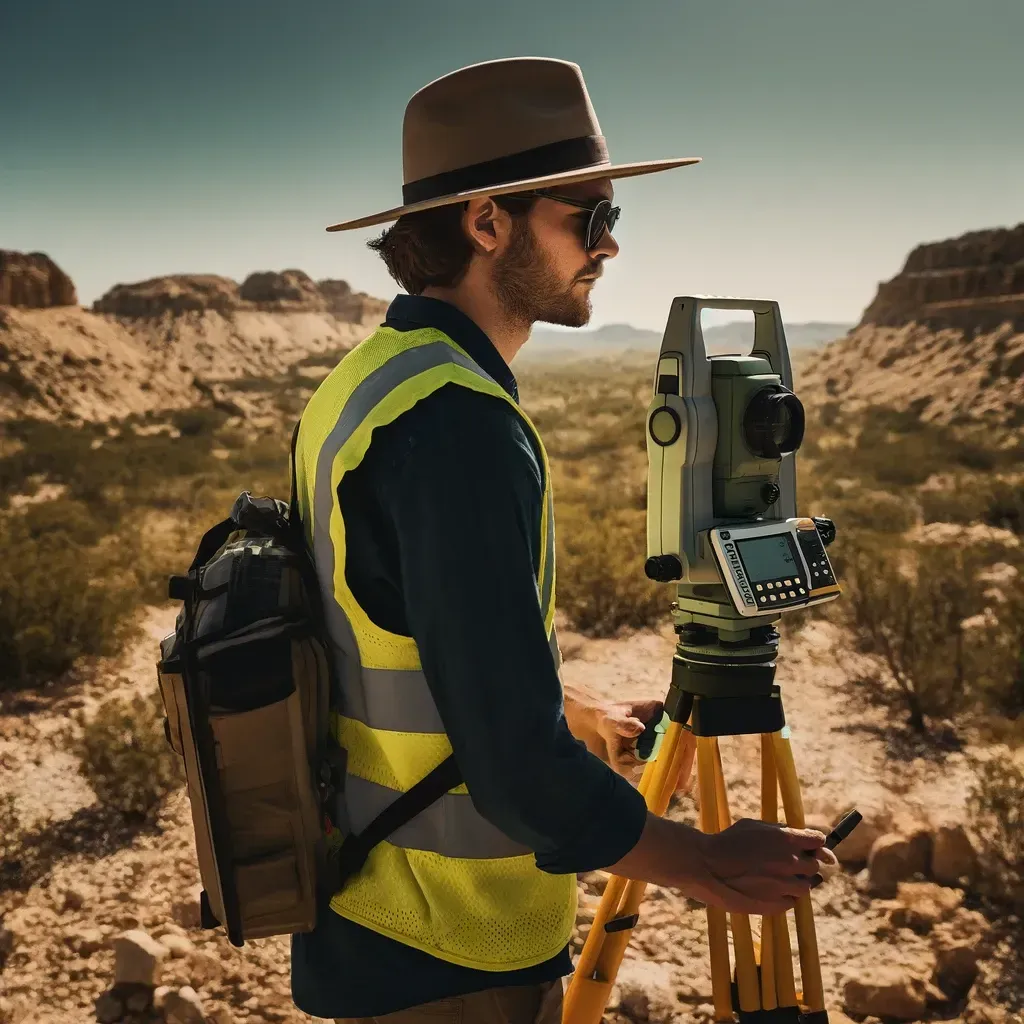Surveying Texas Since 1980 Family Owned, Customer Devoted | Firm #10045400 | 281-556-6918
Thank You!
Thank you for requesting a bid! We'll have a team member call you soon to discuss your needs.
Delivering Land Surveys with Attention to Detail
George Owens

I have worked with many surveying companies, but South Texas Surveying stands out for their exceptional professionalism, attention to detail, and commitment to their clients.
Kim Wexler

Their accurate and thorough surveys make my job a lot easier, their ability to communicate effectively with all parties involved is commendable. I highly recommend South Texas Surveying.
James Cart

As a new homeowner, I was thoroughly impressed with the professional service provided by South Texas Surveying. I high recommend their services to any one buying a home in Houston.
Read Our Latest Blog

Challenges of Surveying in Texas Desert Regions
“The terrain in Texas desert regions is often rugged and difficult to navigate. Surveyors must contend with rocky landscapes, sandy soils, and limited vegetation.” - Chris Evans
Overcoming Surveying Challenges in Texas Desert Regions
Surveying in Texas desert regions presents unique challenges that require specialized techniques and knowledge. The harsh environment, extreme temperatures, and remote locations all contribute to the complexity of land surveying in these areas. Understanding these challenges and how to overcome them is essential for accurate and effective land measurements.
Navigating Harsh Terrain
The terrain in Texas desert regions is often rugged and difficult to navigate. Surveyors must contend with rocky landscapes, sandy soils, and limited vegetation. This can make it challenging to establish stable survey points and maintain clear sightlines. Utilizing all-terrain vehicles and specialized equipment helps surveyors access remote locations and ensure the accuracy of their measurements.
Extreme Weather Conditions
Desert regions in Texas experience extreme weather conditions, including high temperatures during the day and significant temperature drops at night. These conditions can affect both the surveyors and their equipment. Surveyors must be prepared to work in these environments by wearing appropriate clothing, staying hydrated, and using equipment designed to withstand temperature fluctuations. Early morning and late afternoon surveys are often preferred to avoid the harshest conditions.
Limited Infrastructure
Remote desert areas often lack infrastructure, such as roads and communication networks. This can make it difficult to transport equipment and personnel to the survey site. Surveyors must plan meticulously, ensuring they have all necessary supplies and backup equipment. Satellite phones and GPS technology are essential for communication and navigation in these isolated areas.
Environmental Considerations
The desert ecosystem is fragile, and surveyors must take care to minimize their impact on the environment. This includes avoiding disruption to native flora and fauna and ensuring that survey activities do not contribute to soil erosion or other forms of environmental degradation. Compliance with environmental regulations is crucial, and surveyors often work closely with environmental scientists to ensure sustainable practices.
Advanced Technology Utilization
The use of advanced technology is critical in overcoming the challenges of desert surveying. GPS and GNSS systems provide precise location data, even in areas with limited visibility. Drones equipped with LiDAR and high-resolution cameras can capture detailed aerial images and topographical data, allowing surveyors to map large areas efficiently. These technologies not only improve accuracy but also reduce the physical demands on surveyors working in harsh conditions.
Hydration and Health Concerns
Working in desert regions poses significant health risks, particularly related to dehydration and heatstroke. Surveyors must prioritize their health by carrying sufficient water supplies, taking regular breaks, and monitoring their physical condition. Awareness of the signs of heat-related illnesses and having a plan for medical emergencies are critical for ensuring the safety of the survey team.
Cultural and Historical Sites
Desert regions in Texas are often home to cultural and historical sites, such as ancient rock art and archaeological remains. Surveyors must be aware of these sites and take steps to protect them during their work. This involves consulting with local historians and archaeologists and adhering to guidelines for preserving these important cultural resources.
Surveying in Texas desert regions requires a blend of traditional skills and modern technology to overcome the unique challenges presented by this harsh environment. By understanding the terrain, weather conditions, and environmental considerations, surveyors can ensure accurate and effective land measurements. The integration of advanced technology and careful planning are key to successfully navigating the complexities of desert surveying, ultimately supporting the responsible development and conservation of these remote areas.
Contact Us
Email: [email protected]
Office Address: 11281 Richmond Ave
BLDG J, Suite 101,
Houston, TX 77082
Office Hours: Mon – Fri 8:00am – 5:00pm
Office Phone Number: 281-556-6918
11281 Richmond Ave
BLDG J, Suite 101,
Houston, TX 77082
Firm Number: 10045400
Resources
© Copyright 2024 South Texas Surveying Associates
